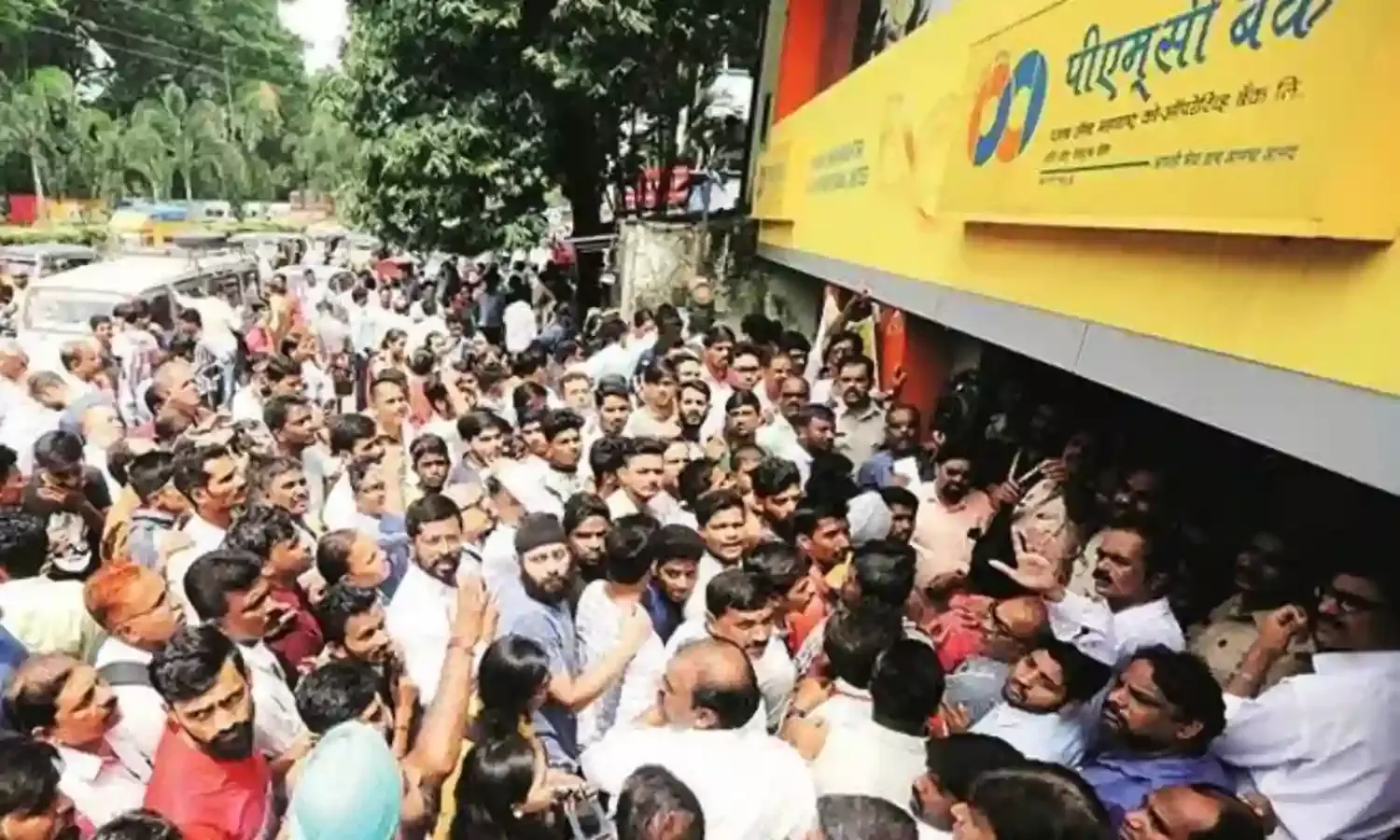PMC Lockout: Systemic Disparity Triggers Crony Deals in Banks
Who are these willful defaulters?;

While commenting on PMC bank scam, Swaminathan Aiyar in his column Swamnomics has stated that he is against businessmen having their own banks because they use them for their private ends. Yes but this is half-truth.
Because big borrowers are quite well equipped with their creative men and methods who keep liaisons with high officials of all banks who create norms and rules favorable to them so that they use them for their private ends even though they do not have their own banks.
Let us see how this is achieved. The Reserve Bank of India (RBI) is a regulatory body which is expected to keep control and vigilance on all monetary transactions in the country. The RBI governors expected certain autonomy for their regulatory power. The two governors have left on the pretext that the expected autonomy is not being guaranteed.
But as facts reveal today it is in the tenure of these and previous governors and the relevant boards that the autonomy is not only fully enjoyed but to the extent that the autonomic power is so fully used that it has introduced two different credit norms one for the big corporate sector and the other for the common consumers, farmers and small undertakings or new entrepreneurs who want to start some innovative business instead of remaining educated unemployed.
How this discriminating policy is carried out may well be seen by credit rules formed by the RBI which has used its autonomy in the very formation. 'Project finance' and 'Consortium of finance' are the two concepts which are introduced so that big corporate bodies prepare a project of more than hundred and more crores and then more than one bank are asked to provide finance for the same.
While preparing a project a virtual picture is created as to how huge profit is possible if so much finance is provided. Then banks are asked to provide full amount. The State Bank of India (SBI) takes the lead in entangling all other banks in this project and the corporate giants get crores of rupees for the project.
The glaring instance is that of Kingfisher Airlines of Vijay Mallya for whom the SBI motivated other banks to provide the finance on the basis of the virtual picture Mallya had created as to how his airlines will get huge profits if so much funds are provided. Accordingly Rs. 4000 crores were disbursed.
What happened actually is now known and there other various cases in which similar bulk finance is provided and when they failed all have turned in to willful defaulters.
Who are these willful defaulters? The list is now being denied by the RBI despite Supreme Court's order to provide the information under the Right to Information Act. The RBI has violated the Supreme Court's order and yet not proceeded against for the violation.
The concept of 'project finance' and 'consortium of finance' is not made applicable to farmers or educated youths carrying out their own businesses with innovative ideas, also for common consumers who need money even of much less quantity.
Farmers' project of land development and providing in-puts and other infrastructural facilities are not considered worth financing under these concepts. Their projects are denied on the ground of feasibility and managers' personal discretion of gross denial.
This is because restrictive credit to farmers is only limited to crop and condition of 'scale of finance' is introduced so that he will not get more than most minimum and will always remain in restrictive credit policy. Farm land and its asset value is not considered for fixing the credit worth of a farmer.
Again no farmer or common consumer is allowed to get loan from more than one bank while the big are fully allowed to take huge amounts from six to eight banks. Even loan waiver which is granted to corporate giants under the term 'hair cut' is denied to farmers. When government announced loan waiver to farmers, architects of such discriminating policy, the then governors Raghuram Rajan, Urjit Patel and SBI chief Arundhati Bhattacharya came forward to declare this as disturbing the credit discipline.
Now about the action against the co-operatives and freedom to nationalized banks. Large number of common consumers are share holders, depositors and borrowers of co-operative banks and being the large section of population should be considered with special facilities.
But instead of special consideration, even what relief and facilities are offered to nationalized banks are also not provided to the co-operative banks. Even due to some minor and technical
irregularities, co-operative banks' boards are superseded and restrictions on routine transactions are imposed thereby putting common consumers to inconvenience even though they have deposited their hard-earned money in these banks.
On the contrary, even large scams in nationalized banks are not considered proper for superseding their director boards as has happened in Punjab National Bank and a consortium of banks including the State Bank which offered loans to Vijay Mallaya only on the basis of a virtual projection of Kingfisher Airlines’s bright future.
On the contrary when these banks fail to recover dues and are in crisis they are helped by way of recapitalization from public exchequer or public money. Thus the disparity nullifies the very basic principle of equity which is guaranteed under the Constitution.

